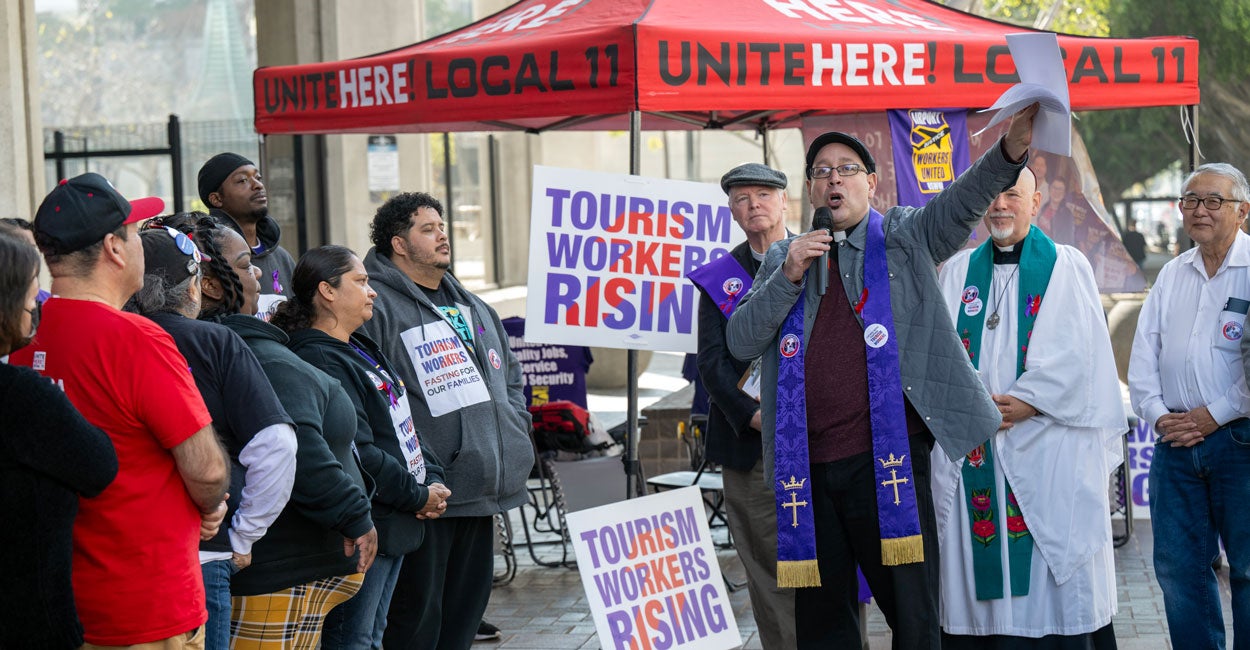


In a classic case of central planning, lawmakers in Los Angeles passed a bill in May to bring the minimum wage for hotel and airport workers to $30 by 2028, while also imposing a new $8.25 per hour mandatory health care contribution. Implementation of that bill is currently on hold as the city clerk reviews the signatures of a referendum petition that would bring the bill to a public vote in June 2026.
Los Angeles’ sector-specific wage hike follows on the heels of California’s statewide $20 minimum wage mandate for fast-food workers that went into effect in April 2024.
The consequences of that wage hike on the fast-food industry should be a warning sign to Los Angeles, especially as it prepares to host the 2028 Summer Olympics. Crucial to the success of those Olympic games will be the capability of the city’s hotels and its Los Angeles International Airport to serve an estimated 15 million visitors.
According to a new study published in the National Bureau of Economic Research, California’s 25% increase in the minimum wage (from $16 to $20) for fast-food workers led to a 3.2% decline in fast food employment, which translated to 18,000 lost jobs.
As noted by the researchers, the actual employment decline associated with a $4 or 25% increase in the minimum wage is almost certainly much higher. That’s because the researchers looked at the entire limited-service restaurant sector, but restaurants with fewer than 60 establishments nationwide were excluded, and some of the areas included already had minimum wages above $16—San Francisco, for example, was already at $18.67—and thus experienced smaller wage increases.
If a $4 or 25% minimum wage hike translates into at least a 3.2% decline in employment, what can be expected for a $13 or 52% increase for airport workers and a $17 or 82% increase for hotel workers?
The impacts will likely be exponentially larger. As the authors of the study noted, “There is increasing evidence that minimum wage increases have nonlinear effects, with large increases having qualitatively different impacts than relatively small minimum wage increases.”
But even without economic evidence, the math itself is telling. Paying hotel and airport workers $38.25 per hour comes out to $79,560 per year. Adding in mandatory taxes brings employers’ costs to over $86,000 per year per. This is more than twice the $41,800 average compensation for hospitality industry employees across the U.S.
Job losses in Los Angeles’ hotel and airport-associated businesses could be more than three to four times the 3.2% decline in fast-food jobs. And in addition to job losses, other impacts like reduced hours for workers and price increases for consumers would also be magnified.
A survey of limited-service restaurant owners in California, conducted by the Employment Policies Institute in the summer of 2024, found that 89% of restaurants had already reduced employees’ hours and 87% planned further reductions over the coming year. And 98% of restaurants had increased menu prices and 93% said they expected to raise prices again in the next year.
The average price for a three- or four-star hotel in Los Angeles in July is close to $300 per night. Add in an 82% increase in minimum wage compensation and Olympic-size surge pricing increases, and the LA Olympics may become an event limited not only to elite athletes, but to financially elite spectators.
When it comes to central planning, history keeps the receipts: Wage controls never work. That’s because policymakers can set wage laws, but they can’t outlaw the consequences.
If policymakers want to help workers achieve lasting income gains without all the unintended consequences of minimum wage hikes, they should reduce government barriers like unnecessary occupational licensing requirements, end the federal monopoly on registered apprenticeship programs so that more people can get paid while being trained for a successful career, and reduce unnecessary regulations—estimated to cost employers $12,800 per worker—that restrict what employers can pay workers.
